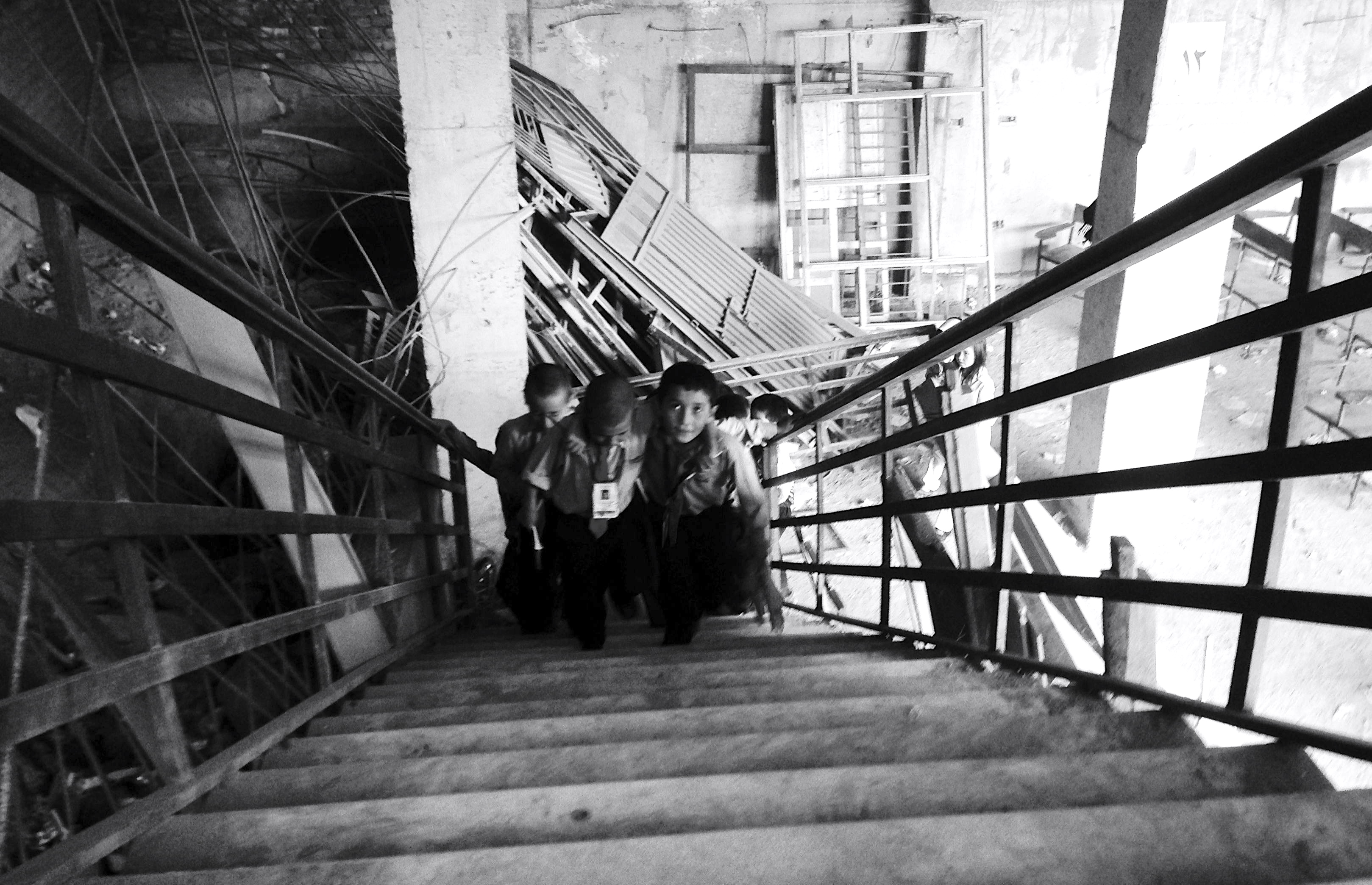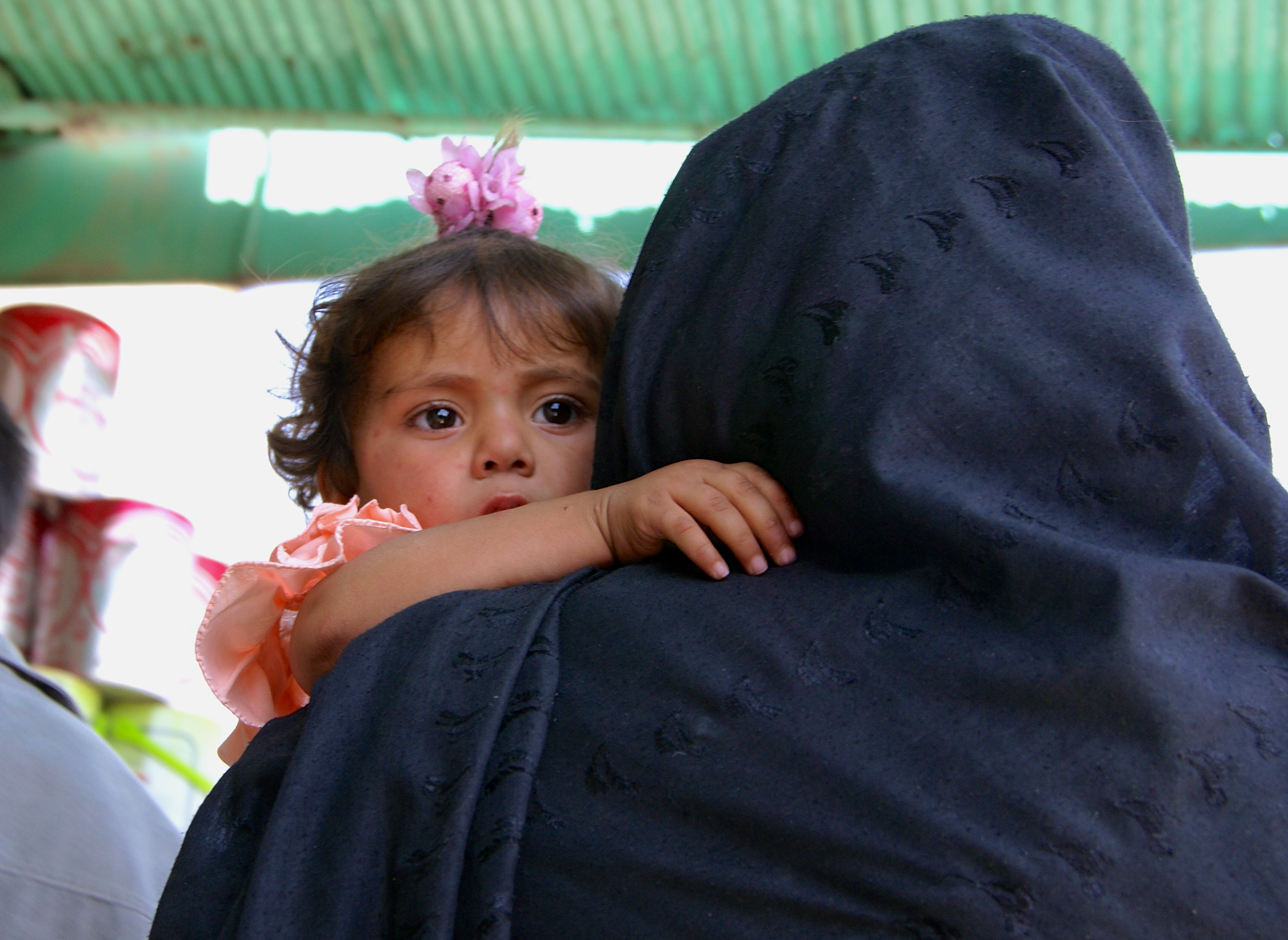
The first thing I do when I arrive in Kabul is to try to get up on a roof. I am in most ways a respectful guest, but this is a city that places a premium on privacy that I routinely disregard. It is a place where people have long prized discretion, so homes were built behind walls, those walls now have walls built on top of them, and the whole thing is often garnished with concertina wire and corrugated tin sniper shields, the idea being that people may shoot at you, but they'll be shooting blind. This is a city that's always enclosed its people and does so now more than ever, so my first inclination is to get above, to climb up and see and hear and smell the things I'm not supposed to. I'm a voyeur here, I guess.
From up here, the city feels denser than ever before. Kabul is one of the fastest-growing cities in the world, but there's something more. There are more voices screaming at a volleyball game in the distance, more whistles, more bicycle-mounted ice cream vendors playing their groaning, god-awful jingles that sound like children's toys whose batteries are dying. There are more muezzins at prayer time, it seems; more voices that mix and swirl and echo around the valley so that it feels as though the mountains themselves were telling us to pray. ISAF surveillance blimps hang tethered to the ground and unmoving. Afghans believe these blimps are miraculous things that can see everyone in the city, all at the same time, and who knows, maybe they can.
Today in Kabul there are more and taller buildings, a new mall where I buy a cell phone the vendor swears is both not a Chinese knock-off ("Real from Germany!" he says, though the manufacturer is Canadian), and brand-new. "Not a refresh!" The mall has a tiny movie theater that shows horror films, a little bumper car track, and a Taliban warning or two. The city's trees are more plentiful and healthier looking. There is still far too much evidence of draught here, but I'm struck by parks which look sort of like parks, by a main thoroughfare which has been under construction the last four or five times I've been here, but which now has a planter running down the median with little trees defying climate. This road has traffic lights, a couple of pedestrian bridges, no potholes, and a new petrol station. There are solar-powered street lamps.
On a recent Friday, I took this road to attend a meeting of Afghan technocrats, ostensibly to help one prepare for a lecture series, but probably to help him prepare for a presidential run. Influential people arrived with fancy sunglasses in fancy cars and well-fed guards carrying big guns, all to spend their days off passing around flow charts with titles like "Optics;" "Legitimacy;" "Group Identity and Subnational Issues." And I think: either all of these people, cherry-picked from the finest minds in the country, are irretrievably naïve, or they know there's enough progress here that it's worth their time to stay and fix the broken things.
And as I look around from the rooftop, there are more signs of normalcy than I've ever recognized before. My neighbor has a couple of unfriendly pet mutts, a trampoline, and an inflatable pool. I have never seen any of these things in Kabul before, and I've been back and forth to this place in various capacities since 2007.
There are tall red blinking radio antennas multiplying a few miles out, like I remember from growing up in Philadelphia, when winter stripped the trees and I would notice things in the distance I'd forgotten since last season. And where once ethnic and religious schisms felt to me like wounds so wide and deep they'd never close, I now wonder, cautiously, whether time may indeed be able to salve them. Kabul is still a segregated city, but it is also a city squeezed together by mountains, and even as squatter houses creep higher and higher up the hillsides like they're trying to escape, it's harder for people to isolate themselves. A leader of one ethnic group once told me I should not write too much about ethnic conflict here, because his country wasn't ready, those wounds had to heal before they could be examined. "It took ten years, didn't it," he said, "for people to begin calling what the Nazis did the Holocaust?" I found that troubling, but coded in his admonishment was the notion that someday his country would be ready, and that that day was in the imaginable future. There are signs now that unevenly, haltingly, the day may be approaching.
There are still darker moments, when people I admire will say revolting things about other races, and it will make me believe that these resentments will never end. I spent a peaceful early Ramazan day at a park with a big-hearted young man I've been close to for five years and watched him become alternately animated and emotional talking about his two small daughters. Afterwards, he insisted I drive his old sedan home, because to him, entrusting me with his finest piece of property was the most selfless gesture he could think of. But as I drove, we passed through a neighborhood inhabited mostly by members of an ethnic group that is not his own. I heard him tut-tutting, and when I asked, he didn't hesitate. "I hate these people," he said, and then he pointed to one of the portraits of the martyred commander they've deified, mounted on storefronts and Toyotas all over the neighborhood. He began recounting all of the animalistic things he'd heard this commander had done. He said he'd never forgive the commander, nor would he the people who had sanctified him.
But here, as time passes and one generation gives way to the next, another change is happening that may--just may--be starting to heal these resentments. To hate someone now because they're the wrong race means you have to hate the way your grandparents do, and while it's hard for 20-somethings anywhere to listen to their elders, it's harder still when your generation is, by every objective measure, better-educated than the last.
***
On the day in late June I'd climbed up to the roof, the Taliban launched a highly coordinated attack in Kabul, an assault whose purpose seemed as much to show what they're capable of as it was to eliminate any target in particular--indeed, the Taliban seems increasingly strategic in its violence. They used counterfeit security passes to breech the fortified diplomatic zone and killed three people before the attack was neutralized, but they got within shooting distance of the Presidential Palace, a CIA station, a handful of embassies, and other high value and supposedly impregnable targets. And there are some parts of the country, I'm told by the security community, that the Taliban will take within days of bases closing; hours even. There are some parts of the country, including provinces enveloping Kabul, which they won't even need to "take," because they already effectively have them. They're active enough there now that Taliban control wouldn't look a hell of a lot different from whatever you'd call what's happening now. In the provinces just over the mountains from Kabul, Talibs come out in the afternoon and control roads, as if the real government and the shadow one held the same job, just in different shifts.
And yet up here on the roof in Kabul, just hours after the boldest kind of attack, the city seems unfazed. I hear people playing and singing; I see a woman with her burkha flung over her shoulder, pumping water. I can smell kabobs being grilled and trash being burned. I see a boy skipping home with a stack of fresh naan. Perhaps I'm seeing validation of all the commentary that's issued forth over the past twelve years on the resilience of the Afghan spirit, but I've always found that explanation to be insulting and dumb. As if people here are more primitive and therefore better equipped to deal with savagery. Or else that they have become immune to violence by witnessing so much of it. They aren't; they don't. They come up with ways to mask their suffering--gallows humor, for example--but they don't suffer less than the rest of us would. Probably more.
So rather, the feeling I have is that the Taliban is facing a simple numbers problem. There are just too many people who've built houses here, too many people opening restaurants, too many people playing soccer, too many people learning new languages, too many people, for the Taliban to do more than insert slivers of violence info city life, to serve as a disruptive criminal syndicate settling scores, capable of terrific violence and trauma, but not of every really coming back. Not of taking the country; not of any kind of writ beyond the places in the provinces where they have it now.
This is not to minimize the threat they pose, a threat which they are making good on with so much frequency that when a few days pass without an attack there's a palpable feeling in the air that's not altogether different from abandonment; suspense at least. And yet, on this night, Afghanistan is still out playing soccer and volleyball, getting stuck in rush hour, praying along to the soundtrack of the competing muezzin. So I allow myself this thought: maybe this is what winning will have to look like.






